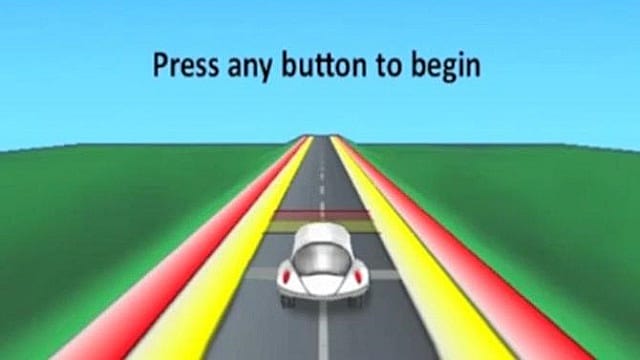One of the more promising techniques video games are being used for is “brain training,” which is exactly what it sounds like. Companies that specialize in brain training claim that it can help people control focus and concentration, improve memory, reduce stress, learn faster, and more. Sound like a lot to promise? Maybe, but some experimental games are living up to the hype.
Dr. Adam Gazzaley, psychiatrist and founding director of the Neuroscience Imaging Center at the University of California in San Francisco, is among those exploring the brain training potential of video games. He and his team began by developing NeuroRacer, a game designed to improve users’ multitasking skills by controlling an animated racecar while reacting to signs along the road, pressing a button if the sign is green and doing nothing if the sign is blue or red. (No word on what red-green colorblind participants were supposed to do.)
In a paper published in the journal Nature, Gazzaley and the rest of his team presented the impressive results of their NeuroRacer study:
For those of us who don’t speak jargon, what this basically means is that after playing NeuroRacer for the study, 60-85 year olds were able to outperform untrained 20-somethings when it came to multitasking, and the benefits were still measurable even 6 months after they stopped playing the game. Additionally, the game unexpectedly improved participants’ working memory. Pretty promising stuff.
Following NeuroRacer, Gazzaley co-founded Akili Interactive, a company seeking to develop games that could treat depression, ADHD, and other mental illnesses and disorders:
So, are we approaching a day when specialized video games may be prescribed in place of medications like Ritalin and Adderall? Greg Toppo, author of The Game Believes in You: How Digital Play Can Make Our Kids Smarter, seems to think so. In a published excerpt from his book, Toppo looks at how Gazzaley and others are changing the ways we view and use video games. He closes the segment with a thoughtful quote from game designer Robin Hunicke:
While video games’ entertainment value is well-established, it’s exciting to see all the new possibilities this research is opening up for the medium. Maybe someday soon, video games will be seen as a valuable therapeutic tool - one people will actually look forward to using.
